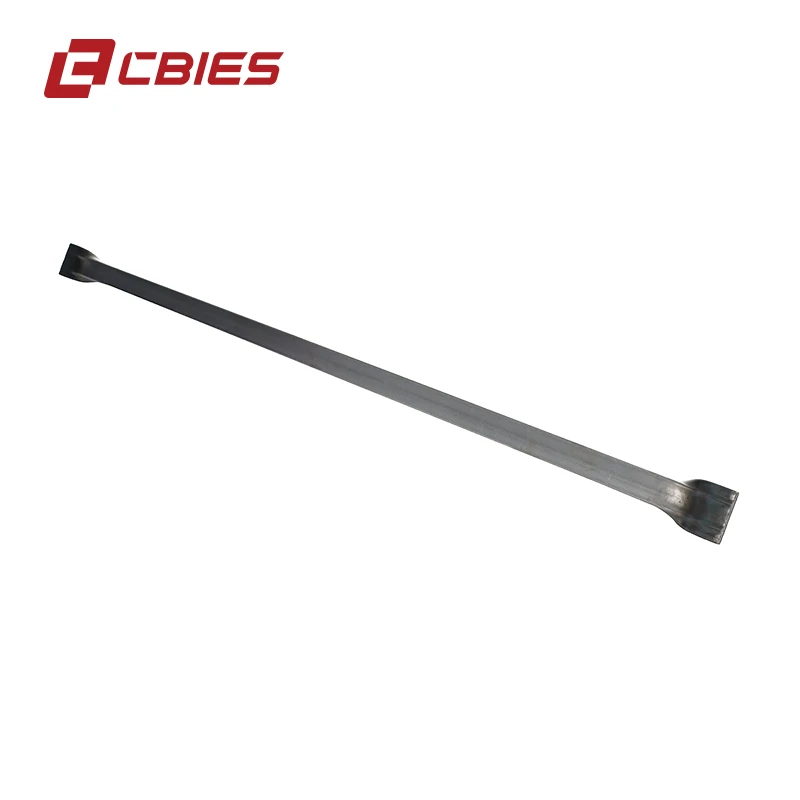
Precision Steel Tubes An Overview
Precision steel tubes are essential components in various industrial applications, known for their exceptional strength, durability, and dimensional accuracy. As industries evolve and the demand for high-performance materials increases, the importance of precision steel tubes becomes ever more pronounced. This article explores the characteristics, applications, manufacturing processes, and advantages of precision steel tubes.
Characteristics of Precision Steel Tubes Precision steel tubes are defined by their tight tolerances and consistent wall thickness. These tubes are manufactured using high-quality raw materials, primarily carbon steel, alloy steel, or stainless steel, depending on the specific requirements of the application. One of the key characteristics of precision steel tubes is their surface finish, which can range from smooth to highly polished. They often undergo processes such as heat treatment and surface coating, enhancing their resistance to wear, corrosion, and other environmental factors.
The dimensional accuracy of precision steel tubes is measured by their outer diameter, inner diameter, and wall thickness, which must adhere strictly to specified tolerances
. This level of precision is crucial in applications where even the slightest variation can lead to structural failure or operational inefficiencies.Manufacturing Process The manufacturing of precision steel tubes typically involves several stages, including rolling, welding, and machining.
1. Rolling The process begins with the rolling of steel billets into tubes. The hot or cold rolling methods can be utilized based on the desired properties of the end product. Hot rolling allows for easier shaping and forming, while cold rolling offers superior surface finishes and dimensional accuracy.
2. Welding For welded tubes, the edges of the rolled steel are brought together and fused using various welding techniques, such as TIG (Tungsten Inert Gas) or MIG (Metal Inert Gas) welding. This process creates a strong bond that can withstand high pressure and stress.

3. Machining After welding, the tubes undergo precision machining to achieve the desired dimensions and surface quality. This includes processes like cutting, drilling, and finishing.
4. Quality Control Rigorous quality control measures are implemented at every stage of production to ensure that the tubes meet the required specifications and standards. Non-destructive testing methods, such as ultrasonic or eddy current testing, may be employed to detect any flaws or inconsistencies.
Applications of Precision Steel Tubes Precision steel tubes find applications across a wide range of industries due to their inherent strength and reliability. Common applications include
- Automotive Industry Used in chassis, exhaust systems, and hydraulic components where durability and precision are critical. - Aerospace Vital in the construction of aircraft structures and fuel systems that require exceptional strength-to-weight ratios. - Oil and Gas Employed in pipelines, drilling equipment, and pressure vessels, where the tubes must withstand extreme conditions. - Medical Devices Used in surgical instruments and medical equipment that require high precision and sterility.
Advantages of Precision Steel Tubes The advantages of utilizing precision steel tubes are numerous. They offer enhanced performance due to their precise dimensions, minimizing the risk of leakage and mechanical failure. Their durability ensures a longer lifespan and reduced maintenance costs. Additionally, the ability to tailor the manufacturing process to meet specific needs makes these tubes suitable for a wide variety of applications.
In conclusion, precision steel tubes are a vital component in modern industry, offering unmatched strength, accuracy, and versatility. As the demand for high-quality materials continues to grow, the significance of precision steel tubes will undoubtedly expand, supporting advancements in technology and engineering across various sectors.